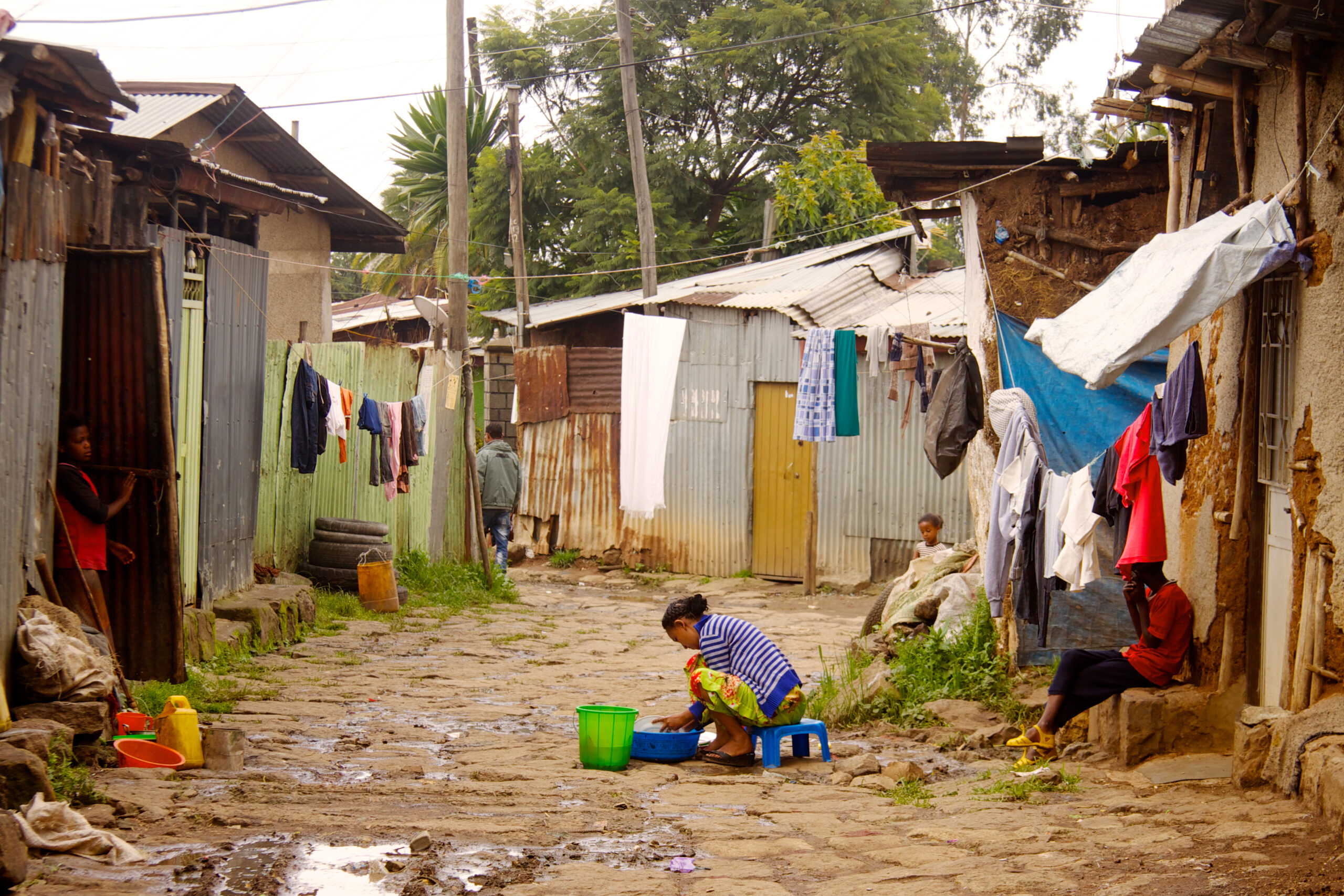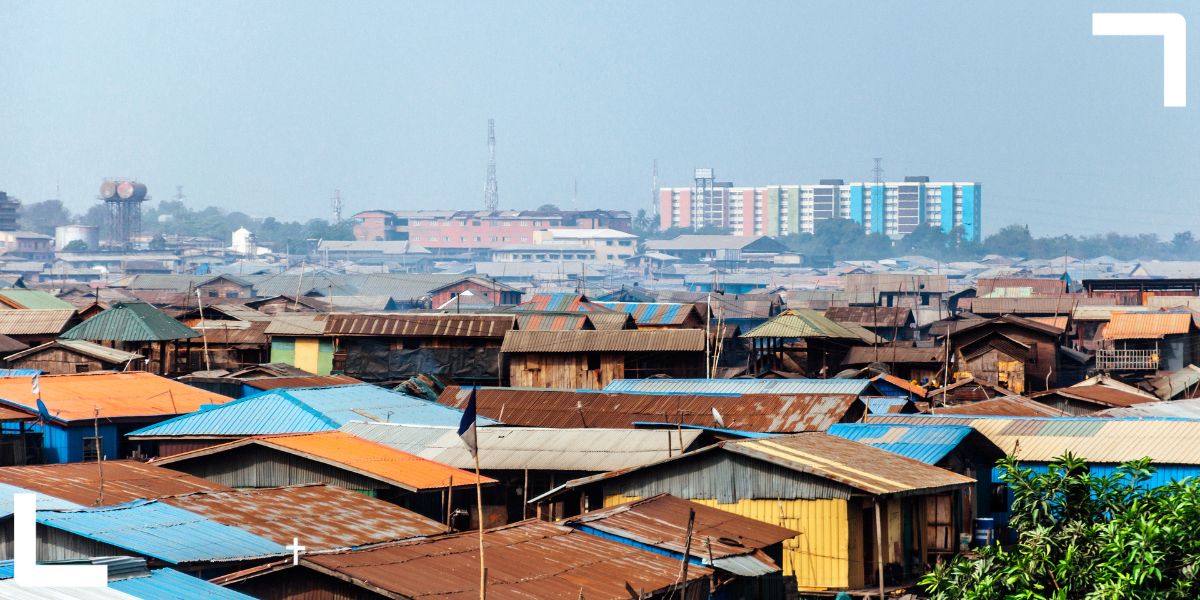The African Cities Research Consortium (ACRC) is convening a panel at the upcoming Development Studies Association (DSA) Conference on Wednesday 6 July: The political economy of urban reform in Africa: From analysis to action. It will showcase new work that uses a political economy perspective to understand the challenges facing African cities and the interventions and reforms that can address them.
Convened by Sam Hickey, Diana Mitlin, Tim Kelsall and Abdul-Gafaru Abdulai, the panel will comprise three sessions, focusing on political settlements analysis, dealing with Covid-19, and the role of reform coalitions in promoting more just and sustainable urban futures.
Save the date: Wednesday 6 July, 11:50-14:30 BST
1. Political settlements analysis
This session will focus on the use of political settlements analysis to advance understanding of the challenges facing African cities, featuring a conceptual paper and several city case studies. Expert chairs will facilitate an active discussion around key themes.
Reframing the politics of urban development in Africa: A political settlements perspective
Sam Hickey, Tim Kelsall, Diana Mitlin and Seth Schindler
Seeks to reframe the politics of urban development in Africa through applying a political settlements perspective.
Related reading:
- ACRC Working Paper 1 – Politics, systems and domains: A conceptual framework for the African Cities Research Consortium
- Forthcoming open access book – Political Settlements and Development: Theory, Evidence, Implications
The politics of development in Accra
Explores the influence of Ghana’s political settlement dynamics on the governance and development trajectories of Accra.
Unpacking the politics of development in Freetown
Jamie Hitchen
Aims to better understand how “competing” centres of power in Freetown shape development trajectories, who is driving and funding them, and how they are shaped by, and shape, political dynamics.
The politics of development in Nairobi City County
Michuki George and Karuti Kanyinga
Draws from a historical perspective, to shed light on the nature of Kenya’s political settlement and how this has impacted the political economy of Nairobi City.
Urban reform for or against the people? Reconsidering the case of Lagos and lessons for urban political economy analysis
Reconsiders Lagos’ urban reforms between 1999 and 2015. Widely regarded as successful, a different picture emerges when assessed from the perspective of slum residents, two-thirds of Lagosians. A political economy analysis is used to explain this outcome and explore alternatives.
Institutional governance of informal markets in Ghana: A political settlements perspective
In Ghana, local governments are legally sanctioned to have control over their jurisdictions. However, in the Accra Metropolitan Assembly, informal actors appear to have more control over Accra’s informal traders than the officially sanctioned institutions, due to the power struggle in the jurisdiction.
2. The politics of Covid-19
A session examining urban management and governance under the stress of the pandemic. It will draw both on “top down” interventions and the remaking of bottom-up coalitions pressing for reform in Kampala, Lilongwe, Mogadishu and Nairobi.
Political settlements and collaborative responses to Covid-19 in African Cities
Alice Sverdlik and Tim Kelsall
A comparative analysis of the impact of political settlements and collaborative responses to Covid-19 in Kampala, Mogadishu and Nairobi.
Related reading:
- ACRC working paper 4 – Understanding the politics of Covid-19 in Kampala, Nairobi and Mogadishu: A political settlements approach
- ACRC working paper 5 – Towards a comparative understanding of community-led and collaborative responses to Covid-19 in Kampala, Mogadishu and Nairobi
Politics in the “Covid policy domain” in Uganda
An investigation of the politics of Uganda’s Covid-19 response, exploring the major players, their motivations, and the implications of their (in)actions on the response.
3. Reform coalitions
A roundtable session featuring a panel of both academic and policy experts, including from the global South, to discuss the papers and their implications for a new generation of reforms in African cities. Chaired by Jo Beall, the discussants for Diana’s paper will be Beth Chitekwe-Biti and Caroline Skinner, and for Hita and Vanesa’s paper will be Lorraine Howe and Getachew Bekele.
The contribution of reform coalitions to pro-poor change: Lessons from practice
Explores and analyses the role that reform coalitions can play in navigating the politics of African cities in pursuit of more just and sustainable solutions. Discusses the ways in which transformative change can be secured to address inequalities and create opportunities for low-income and marginalised groups.
Related reading:
- Diana Mitlin for The Conversation Africa – Citizen-government coalitions could hold the key to the reform of African cities
Challenges to co-production in post-colonial cities: A review of the landscape of co-production with focus on urban energy
Hita Unnikrishnan and Vanesa Castán Broto
Reviews over 150 published articles on co-production, to demonstrate subtle differences in the landscape of co-production across different sectors such as green and blue commons, transport, housing, and energy.

A girl washing up in Lideta district, Addis Ababa. Photo credit: mustafa6noz / iStock
In addition to the ACRC panel, two of our postdocs, Elizabeth Dessie and Ezana Haddis Weldeghebrael, are presenting papers at conference sessions on Friday 8 July.
Being young and rural in the city: A longitudinal study of gendered livelihoods in Addis Ababa, Ethiopia
A postdoctoral research proposal that draws on intersectionality to examine the livelihood strategies of migrant youth in post-pandemic Addis Ababa, in a post-conflict national setting. An intersectional perspective can generate new knowledge on subjective experiences of urban space. The paper emphasises the importance of such knowledge in integrating the voices of vulnerable youth into development interventions.
Workshop: Intersectional approaches to adolescent voice and agency: Gender and participation in the context of multiple crises | 11:50-12:30 BST
Elizabeth is part of ACRC’s youth and capability development domain team.
Strategic response to clientelism: Seeking formal housing through partisanship by quite encroachers in Addis Ababa, Ethiopia
An exploration of how Addis Ababa informal settlement residents, threatened with eviction for state-led redevelopment, sought formalisation through partisanship, working with the ruling party to gain favours in the allocation of replacement formal housing. The paper examines how, rather than resist displacement, they actively manoeuvred clientelist relations to defend and expand their informally secured gains.
Panel: The role of formal and informal political networks in the context of Development-Induced Displacement in urban areas and its impact on sustainable futures | 11:00-11:40 BST
Read more by Ezana in his article for The Conversation Africa about Addis Ababa’s urban development challenges, and in his write-up of ACRC’s session at the 2021 DSA Conference.
Header photo credit: peeterv / Getty Images (via Canva Pro). Overlooking an informal settlement in Lagos, Nigeria.
The African Cities blog is licensed under Creative Commons Attribution-NonCommercial-NoDerivatives 4.0 International (CC BY-NC-ND 4.0), which means you are welcome to repost this content as long as you provide full credit and a link to this original post.


